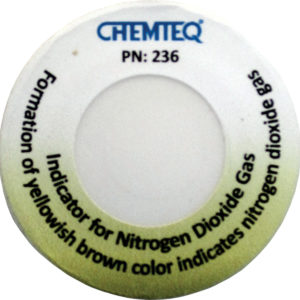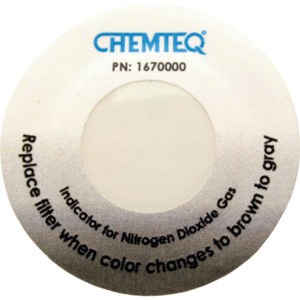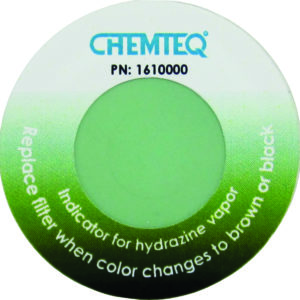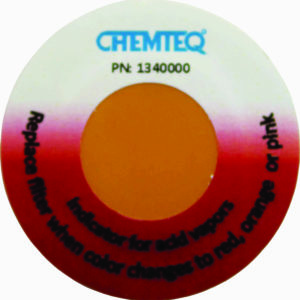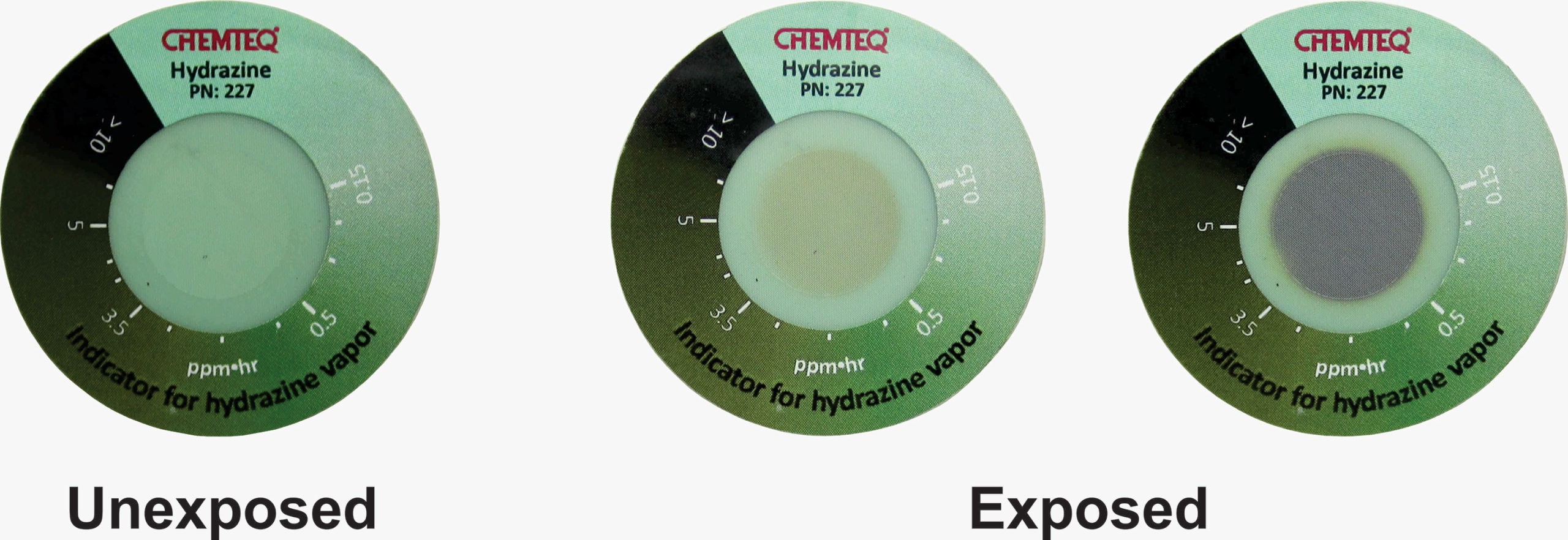
Hydrazine Area Monitor
Area Monitor • Hydrazine Indicator • MIL-P-87930 Indicator • H-70 Indicator
Item No. 227
Product Features
Minimum detectable limit: 0.15pmm•hr
Color Change: Green to black
Dimensions: 1.5″ diameter, 2mm
Service life: 6 months
$200.20
The hydrazine area monitor is highly sensitive and selective indicator for the presence of traces of hydrazine in air. This area monitor is most suited as leak detector for hydrazine, MIL-87930 and H-70. It can be used indoor or outdoor and has extended service life of 6 months. The area monitor is also suitable to monitor air on stack, duct, vent or flue where representative samples can be obtained.
|
a |
Weight: | 0.4g (0.02oz) |
|
b |
Dimensions: | 2.8mm (0.11in), diameter: 38.1mm (1.5in) |
|
c |
Operating temperature: | -20oC to 65oC (-4oF to 149oF) |
|
d |
Operating humidity: | 5% RH to 90%RH |
|
e |
Minimum detectable limit: | 0.15ppm•hr. at 30 cm/sec face velocity |
|
f |
Color change: | Green to black |
|
g |
Storage temperature: | 4oC to 25oC, (39oF to 77oF) |
|
h |
Shelf life: | 2 years at 4oC to 25oC, (39oF to 77oF) |
|
i |
Service life: | 6 months |
Hydrazine H-70 Area Monitor
Useful links
US EPA
HIOSH
Hydrazine DG Water Analysis
Filter change indicator
Filter with end-of-service life indicator
Facts about hydrazine
Hydrazines (H₂NNH₂) are clear, colorless liquids with an ammonia-like odor. Hydrazines are highly reactive and easily catch fire. Workers may be harmed from exposure to hydrazine. The level of harm depends upon the dose, duration, and work being done.
Hydrazine is used in many industries, such as the manufacturing of rocket propellants and fuels for spacecraft. Some examples of workers at risk of being exposed to hydrazine include the following:
Workers who use it for boiler water treatments to protect against corrosion
- Industrial workers who use it as a chemical reactant
- Researchers who explore cancer treatments
- Agricultural workers who use it in pesticides
Related products
-
(Pack of 5)
Nitrogen Dioxide Area Monitor
$168.00 -
(Pack of 5)
Nitrogen Dioxide Filter Breakthrough Indicator Sticker – BTIS
$96.25 -
(Pack of 5)
Hydrazine Filter Breakthrough-Indicator Sticker – BTIS
$132.30 -
(Pack of 5)
Acids Filter Breakthrough-Indicator Sticker – BTIS
$91.87

